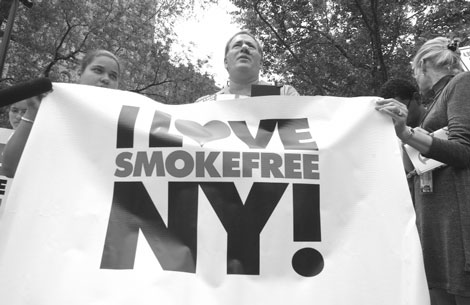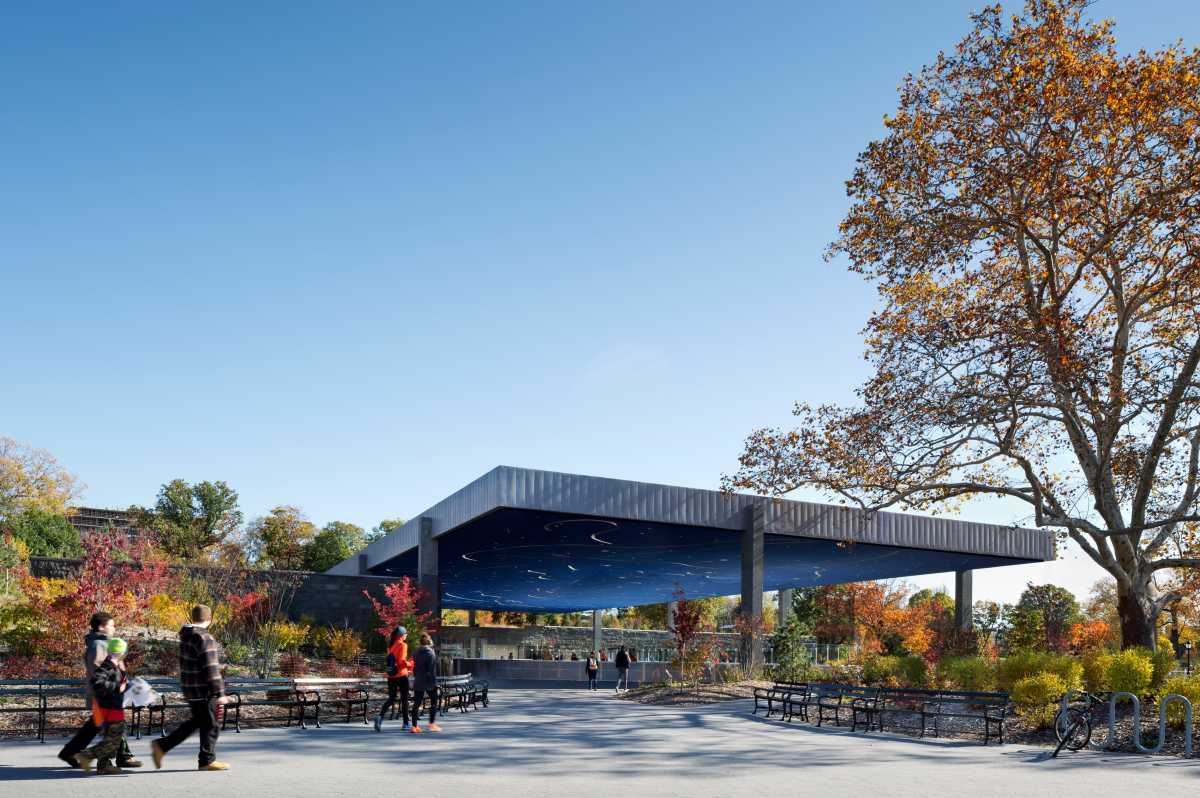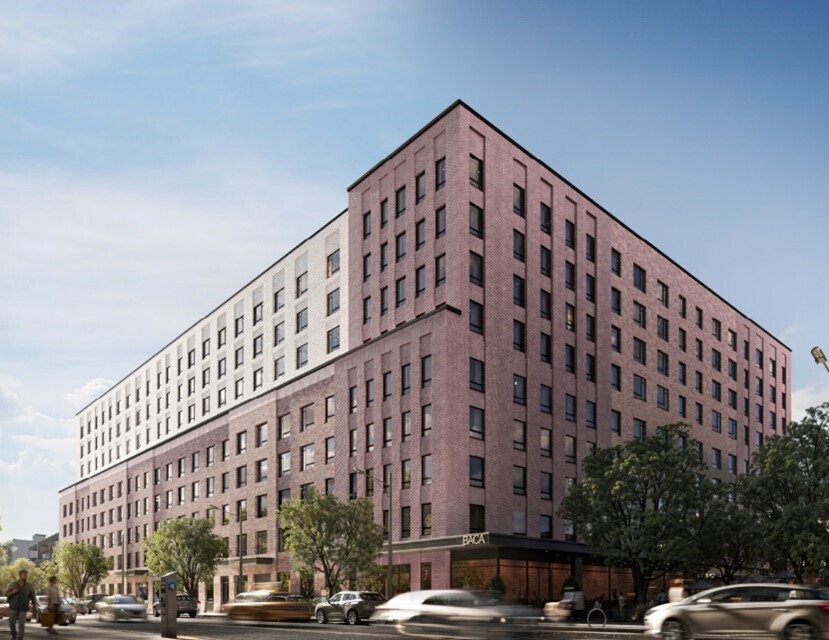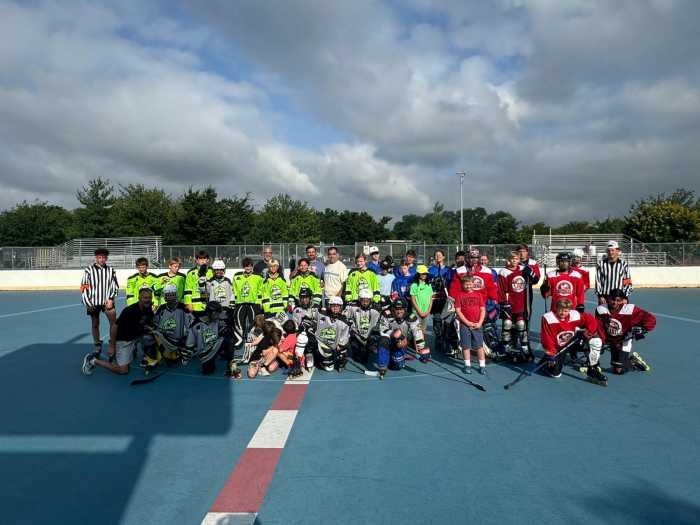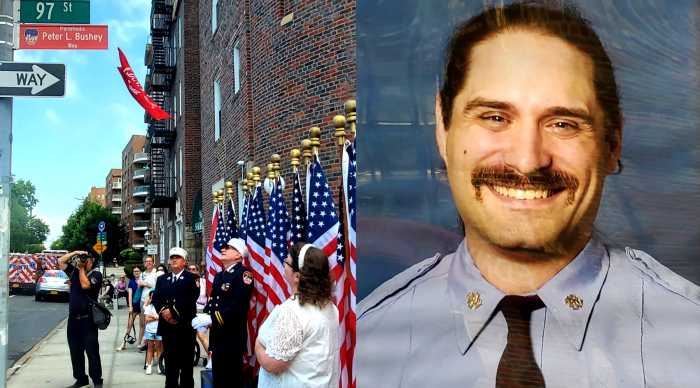By Elizabeth O’Brien
’
Bar owners and employees rallied outside City Hall last Thursday on the first day of the state’s smoking ban, protesting a law that they said was squeezing their profits and suffocating the city’s nightlife.
The state’s smoke-free workplace law closes several loopholes in the city smoking ban that took effect on March 30, including provisions allowing smoking in specially constructed smoking rooms and in bars or restaurants with no employees.
Since the city snuffed out most smoking in clubs and bars, revenue at nightspots has dropped 25 to 30 percent, according to David Rabin, co-owner of Lotus nightclub in the Meat Market and president of the New York Nightlife Association
“The ban is destroying hundreds of small businesses like mine,” said Sandee Wright, owner of the Whiskey Ward bar on Essex St. on the Lower East Side. “You think secondhand smoke is unhealthy, what about poverty?”
Protestors disputed Mayor Michael Bloomberg’s claim that nonsmokers would flock to bars after the ban went into effect.
“Where are these mythical people he’s talking about?” asked Mark Toner, 35, a bartender at Blooms in Queens who was puffing on a cigar at the rally.
Toner estimated that his tips plunged about 40 percent since the city law took effect.
Protestors also challenged the city’s assertion that restaurants and bars have not laid off workers since the ban began. Last week, the city’s Health Department released a report saying that between March 11 and June 11, the city experienced an increase of 9,700 bar and restaurant jobs. This jump represented a sharper rise than that of the same period last year, the study said.
“They’re either lying or living in another state” when they say the smoking ban has had no effect on business, said Wright of the Whiskey Ward.
While the city and state laws were designed to protect workers from the dangers of secondhand smoke, many said that bar employees do not want such intervention.
Ria Kramer, 42, a part owner of Raven on Avenue A and E. 12th St., said that all of her employees smoked.
“They’re already getting firsthand smoke; they don’t need to be protected from secondhand smoke,” Kramer said.
Several dozens of ban supporters disagreed. They staged a counter-rally outside City Hall as hundreds of anti-ban protestors gathered along Broadway.
“Today is a great day because New York City blazed the trail,” Dan Klotz of the American Cancer Society was quoted as saying.
But Rabin and others asserted that the city legislation only set the stage for more economic devastation throughout the state. In addition to financial concerns, Rabin addressed the quality of life issues heightened by the ban, including noise complaints from residents living near bars, and congested and dirty sidewalks.
Martha Danziger, district manager for Community Board 3, which includes the East Village and the Lower East Side, said that noise complaints have surged since the city’s smoking ban took effect. Susan Stetzer, chairperson of the board’s public safety and sanitation committee, called for a balance between the needs of the nightlife industry and the needs of the community. She said she hoped and expected that business would rebound at bars and clubs as people got used to the law.
“It’s painful for some businesses and it’s painful for some people,” Stetzer said. “It doesn’t mean the law is a bad law.”



